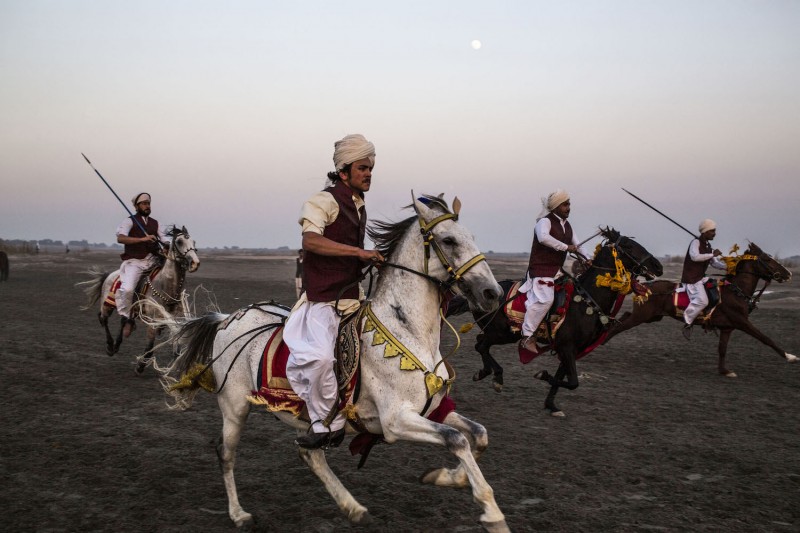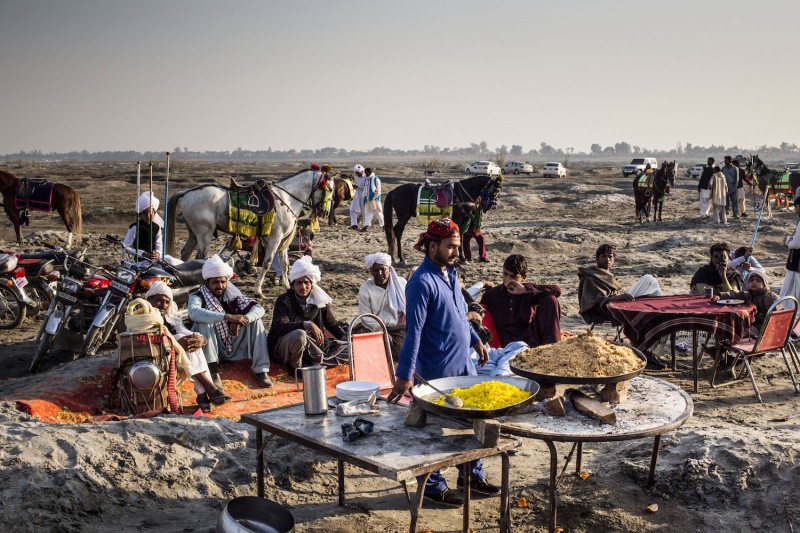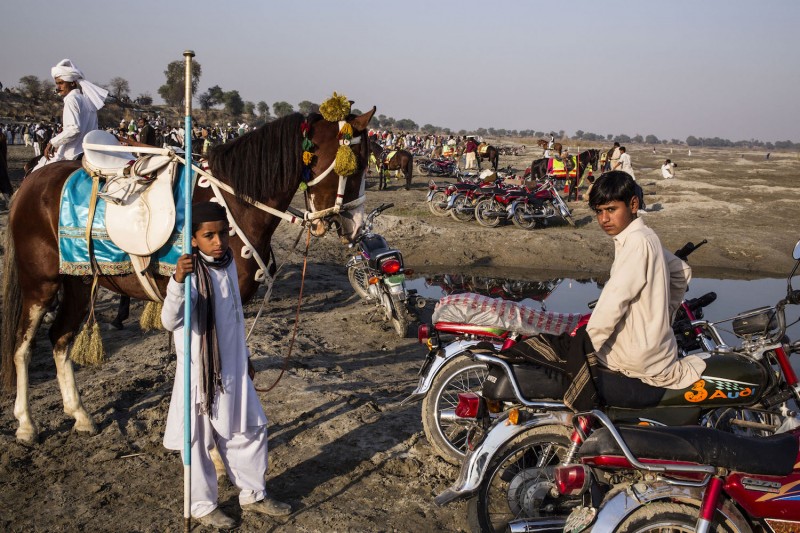Tent pegging in Pakistan
Tent pegging in Pakistan
Sarah Caron
September 7, 2018

LFI: How did you come up with the idea to create a series about Tent Pegging in Pakistan?
Sarah Caron: I was lucky to grow up between the city and the countryside, with a dozen high-quality horses (Anglo-Arab and Cartujano) at my disposal since childhood, and the opportunity to canter through the parched and arid landscape of Castille in Spain.
When I was offered a horse in Pakistan that I do not have time to ride very often, it was natural for me to find him an activity worthy of his physical strength. That's how I became interested in Tent Pegging.
Could you describe Tent Pegging in a few sentences? What do you find particularly fascinating about this discipline?
Tent Pegging is officially recognised by the International Equestrian Federation. Its origins date back to ancient times, when the cavalry of the Indian subcontinent developed war strategies in which horses served as a weapon: a company of horsemen would carry out pre-dawn surprise attacks on their adversaries’ camps – severing or uprooting their tent pegs with their lances to collapse the tents on their sleeping occupants, giving them a firm advantage over their enemies.
The movement of leaning down towards the ground to uproot a tiny piece of wood whilst cantering at full speed requires the rider to be extremely flexible and completely at one with their horse. Essentially, it is the horse that has its rider, not the other way around. The game is dangerous, brief, intense and filled with suspense. The horses are not entirely domesticated, as their character is supposed to remain aggressive and combative.
Despite its long history and great popularity in the Middle and Far East, Tent Pegging has only been gaining attention in Germany since 2013. There have also been Tent Pegging World Cups since 2014. How did this come about?
Yes it's true that Tent Pegging is gradually coming to Europe. However, the horses are not the same: what I observed in Norway was that they tend to be bigger and not as fast or aggressive. It seems to me that relatively small, sturdy and very muscular horses are best suited to gaining speed and avoiding injuries.
Nevertheless, I view the arrival of Tent Pegging in parts of the world other than Asia as a very positive thing. And I am pleased to see that it attracts women as well as men. In Pakistan, the sport is unfortunately exclusive to men, and even at Tent Pegging festivals it is extremely rare to see women in the audience.
The sport almost disappeared in Pakistan, because it is extremely expensive: it takes around 5 to 8 years to train a great competition horse, and a master trainer can only take on two or three horses at the same time. Now, however, there are numerous Tent Pegging festivals all around the country, and they provide a boost to the local economy wherever they take place – drawing a network of food sellers, musicians, horse transporters etc. whose livelihoods depend on the frequency of these festivals.
Horse-owners and riders enjoy maintaining this prestigious discipline. In rural areas, opportunities for sports and entertainment are few and far between, making Tent Pegging increasingly popular. Sponsored by rural tribal leaders and urban entrepreneurs, Tent Pegging to me seems as emblematic of Pakistan as Cricket or Squash.
In some of your images, you seem to be right up close to the action. How did you achieve these results, and what were your greatest challenges?
It’s customary for me to be right in the thick of it – it’s how I generally like to work: close to the action and the people that I capture.
All images © Sarah Caron
Equipment: Leica M 10
Sarah Caron+-
The French photographer has been producing reportages in various areas all around the world. In addition to assignments for international magazines, she also does her own projects, above all since 2007 in Pakistan and Afghanistan. Among others, her works has been recognised with the Visa pour l’Image Female Photojournalist Award and the Getty Images Grant for Editorial Photography. More


